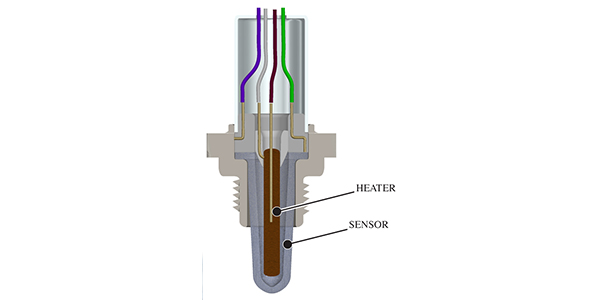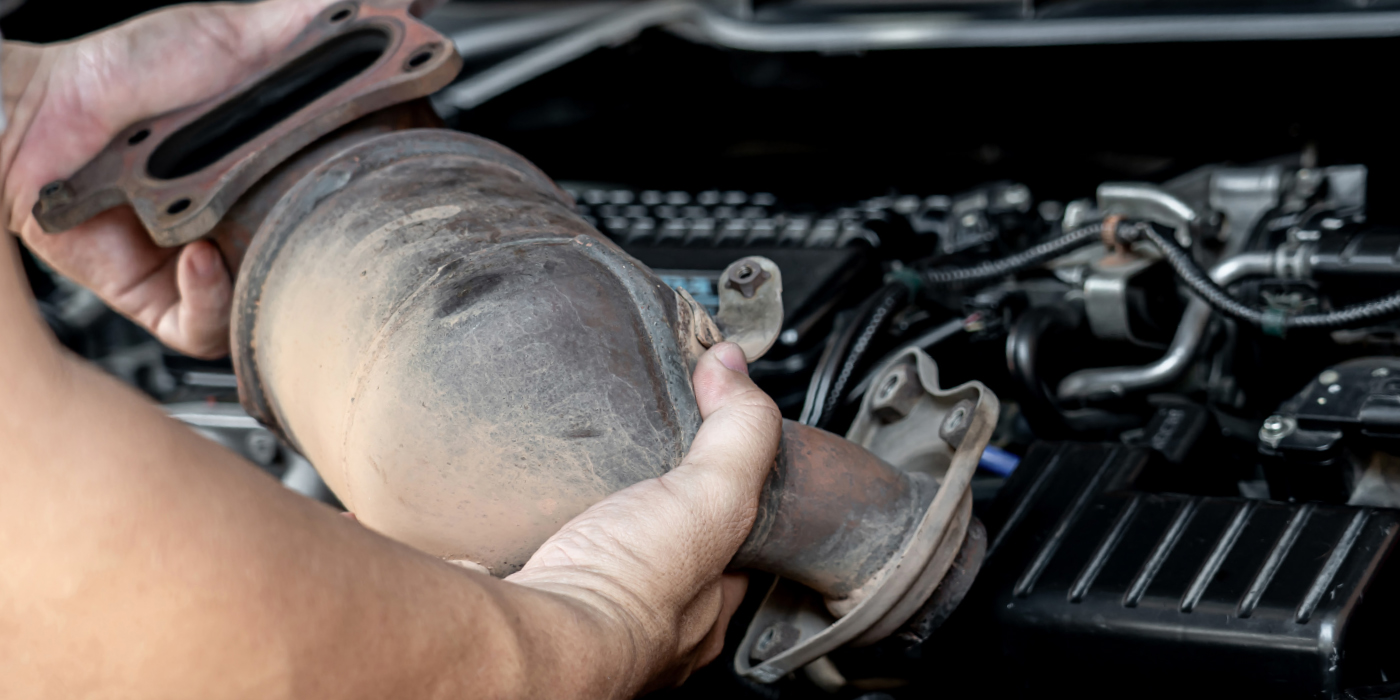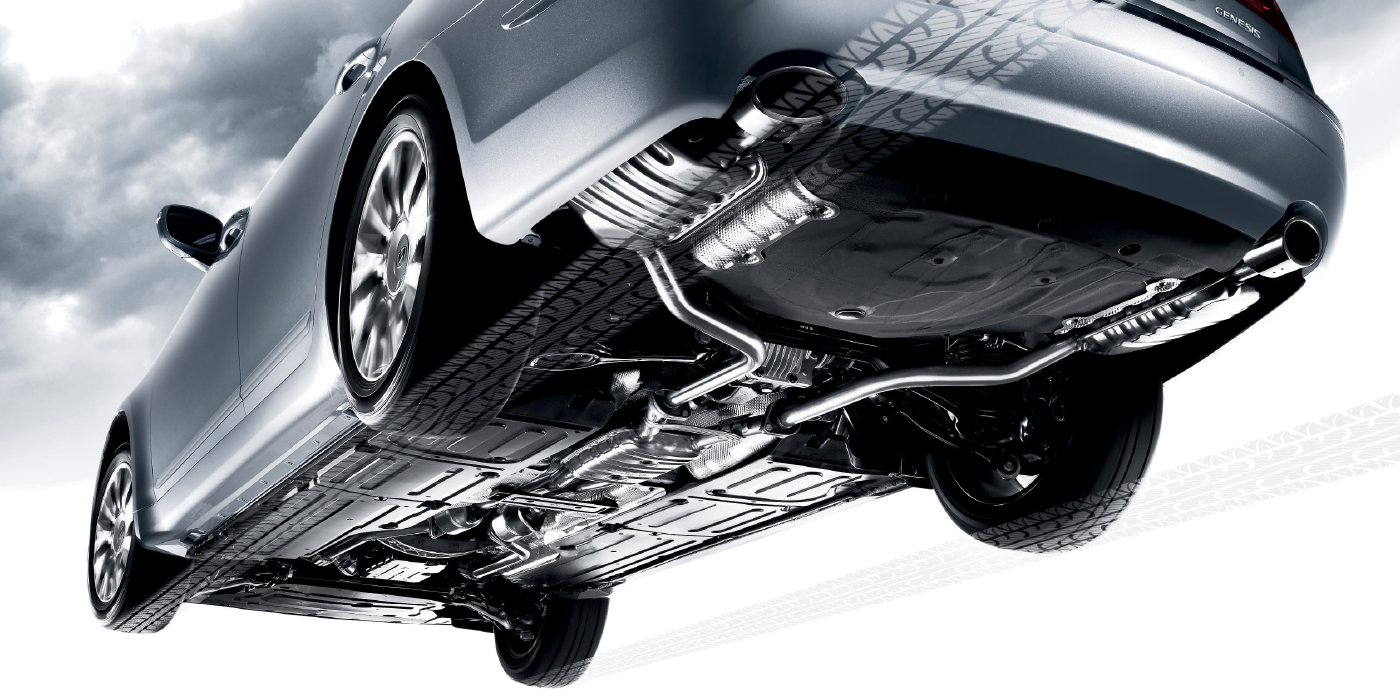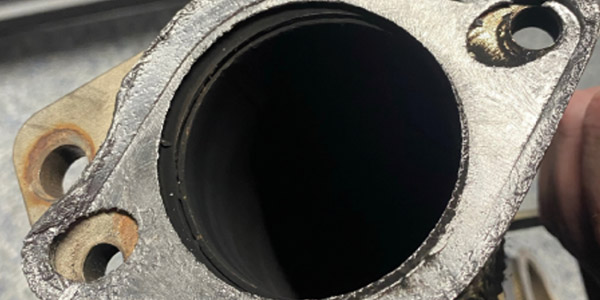I like many people, I have a childhood memory of going on car trips that seemed to last forever. Usually about 15 minutes into the trip, I would ask: “Are we there yet?” This question would be delivered with the accompanying whine that only very small children and some wild animals are capable of making. My parents in their infinite wisdom would turn to me and say: “We’re almost there, it’s just around the next bend.” Fast forward to today. As a shop owner or a technician you are no doubt looking for ways to improve efficiency, speed and profits. And, as a shop owner or technician, you know how frustrating it can be to have to depend on outside providers to make a living. How many times have you had to wait hours or even days for parts to be delivered?
One such area of frustration (and opportunity) is custom pipe bending and cutting. As a shop owner, you have always had a couple of options. The first is to stock inventory based on best guesses as to what vehicles will come into your shop needing pipes. This is fine if you have lots of room, money and a pretty clear crystal ball for deciding what stock to carry. Even if your parts distributor offers you a consignment program on exhaust parts, it still takes time, space and lots of aggravation to keep stock in your shop.
Another solution for this problem is to depend on your local jobber to supply you with the components you need. This solution presents the same problems encountered when you stocked the pipe except now the parts are across town or across country. You are now faced with being dependent on the jobber or the driver (shipper) to get you the parts you need to repair exhaust systems.
So what’s the solution? The possible solution for you and your shop might be to invest in a custom pipe bender. These amazing tools allow the user to create pretty much any shape pipe needed in a short amount of time. With a small amount of training and some practice, you can be producing your own components and no longer be dependent on parts distributors for your exhaust needs.
Before you rush out and plunk down thousands of dollars for a bender, you need to do some homework, There are several important questions you need to know the answers to. In no particular order, here are some issues for you to consider:
Volume
How many bays does your shop have? How many vehicles do you see daily/weekly/yearly?
As you know better than anyone, the name of the game for equipment is ROI or Return on Investment. Simply put: How long will it take for you to break even on the investment? You need to know how many cars you see and you also need to know what kinds of repairs those cars need. The bottom line for this calculation is: Do you have enough business in your shop to support a bender? There are some additional elements to determine ROI including financing and depreciation, which I will address below.
Location, Location, Location
I’m sure you’ve heard that saying about real estate. Location is also important when thinking about making big equipment purchases like a pipe bender. Are you located in a rural or farm community? What is the population that you serve? Are there lots of specialty exhaust shops in your area? Are there many repair shops? The question of being in a rural area versus a bigger city is an interesting one.
On one hand, if the area is too rural, there may not be enough customers that need exhaust repairs, but it can also mean less competition for you if no one else is providing the same service.
On the other hand, if you’re located in a big city, you have a lot more potential customers, but also more competition. It really comes down to doing market research to see if someone in the area is doing exhaust work.
Does Not Play Well with Others!
If this has ever been said about you or your shop, you shouldn’t consider this next idea. But, if you are that guy who everyone likes and gets along with, maybe you should consider the idea of becoming a jobber/manufacturer for other shops in the area that need exhaust pipes made. This is a great way to make your money back sooner on the investment and it can also create invaluable relationships for other kinds of cooperation between you and your competitors. Let’s face it; not every shop can be good at every repair or have an expert on every type of car. Doing sub-work for other shops is a nice profit center.
The Sky’s the Limit
While it is never OK to charge excessively high prices, it is OK to charge a fair price for items that are either obsolete or scarce. A great example is hobbyists and custom car builders. It’s unlikely that the customer is going to be able to buy a crossover pipe for a ’75 Vega with a 396 V8 motor. Custom pipe = custom price! Hopefully the light bulb is starting to come on for you on this idea!
Dollars and Sense
Financing can make sense when looking at a big-ticket item like a bender. The big questions are rate and term. How much money are you going to have to borrow and how long do you have to pay it back? Like everything in life, money talks. If you’re able to buy in cash, you’ll be able to save money on the purchase.
Another variable to consider when considering an equipment purchase is depreciation. As a business owner, you will be able to depreciate or take a tax break on the equipment for a number of years after the purchase. This is based on the IRS rules that say equipment has a fixed life. This period is generally five to seven years, but can change based on things like the equipment, the type of business and other variables. Unless you spend a lot of time reading boring IRS regulations, which change yearly, you should consult with an accountant to see what the story is concerning depreciation.
Details, Details
If after considering all the above points, you decide you’re going to buy a pipe bender, there are a few more things you need to think about. Some of these are pretty straightforward and others will take a little more thought. Let’s talk about the easy stuff first:
Space: Do you have room in your shop to put a bender? It’s not just the footprint of the tool itself, which is pretty large, but you also need room for swinging long pieces of tube. Figure an area at least 10’ by 10’.
Power: There are manual benders, which use hydraulic rams that are operated by hand or foot levers and there are also power benders that use electric pumps to create extremely high forces to bend and shape tubing. You will need to decide what type of machine first and then think about power requirements for that machine.
Types of Work: Round? Square? Exhaust? Frame work? Maybe you want to start building race car roll cages. Whatever you have in mind, there’s a bender that can handle the work.
Size of Materials: You need to decide what you think the biggest material you want to handle is. The larger the capacity of the machine, the more costly it becomes in terms of purchase price, accessories and other requirements.
The good news about buying equipment like this is that the distributors have done most of the research already on many of the questions above. They are well trained and can help you make informed buying decisions. They can quickly tell you about the opportunities in your area, and probably know about competitive equipment in the area as well. These machines are still special enough that there isn’t one on every corner.
So if you have been racking your brains trying to figure out how to grow your business, the answer may be just around that next bend!
Maintenance for Your Pipe Bender
WEEKLY
Clean and re-grease guide plate, arbor and swager clamp blocks.
Check all pressures. Back pressure should be maintained at 1,600 psi.
Spray all tooling with light-duty spray lubricant to prevent rust.
Check depth-of-bend plate for accuracy.
MONTHLY
Inspect all hydraulic hoses for wear or cuts. Replace faulty hoses immediately.
Check for and repair all hydraulic leaks.
Check for equal chain tension.
ANNUALLY
Check all electrical connections.
Replace any worn or defective tooling.
Check and level guide plate if necessary.
Courtesy of BendPak




